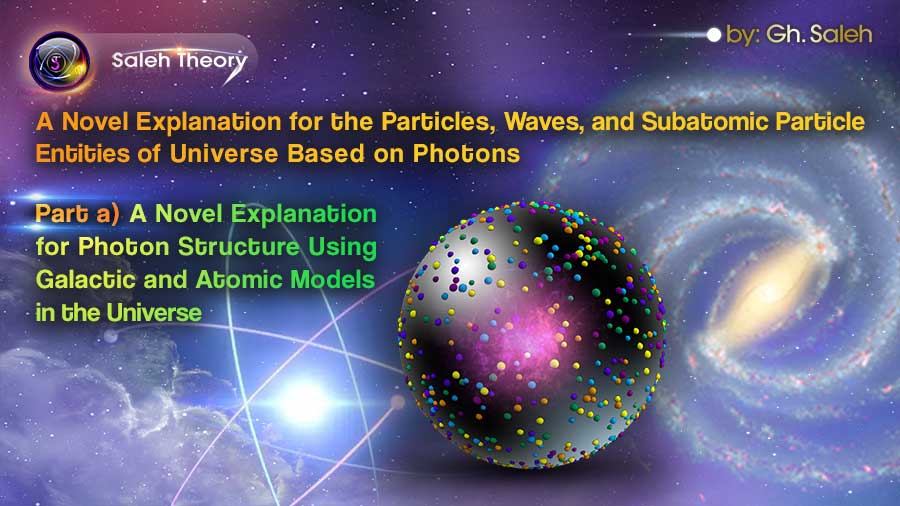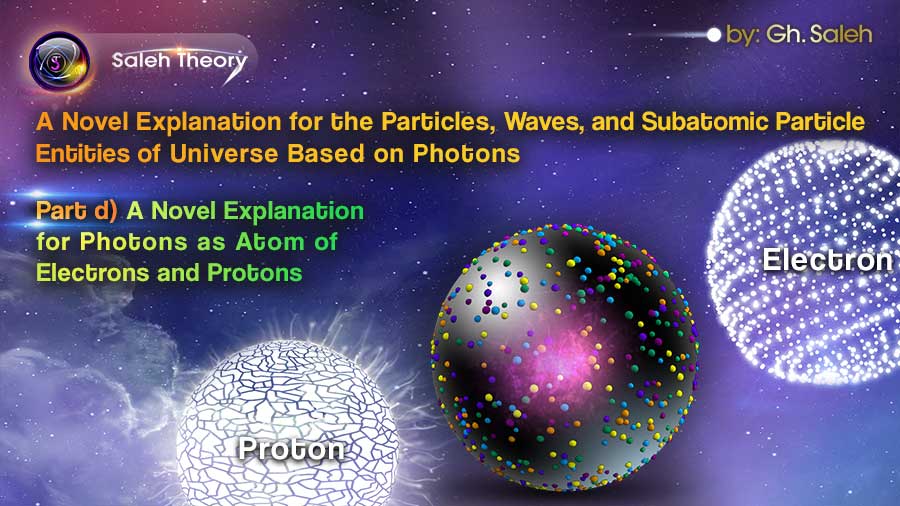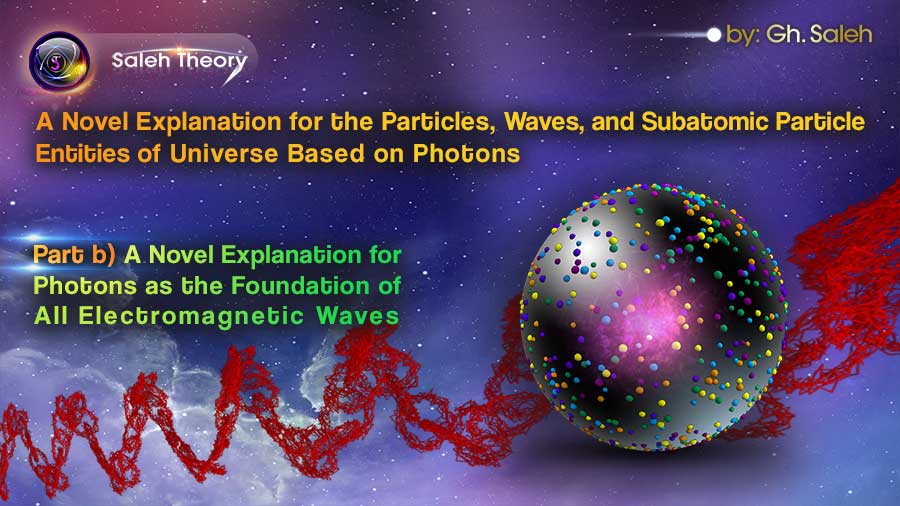
A Novel Explanation for the Particles, Waves, and Subatomic Particle Entities of Universe Based on Photons
Part a) A Novel Explanation for Photon Structure Using Galactic and Atomic Models in the Universe
When we gaze upon the night sky, we encounter luminous points, each seemingly pulsating with its own light. A cursory glance might lead us to dismiss these as mere tiny points. Yet, a deeper, more profound observation reveals that each of these points is, in fact, a galaxy, often spanning well over a hundred thousand light-years in diameter. It is the immense, incomprehensible distances separating these galaxies from us that cause them to appear so small, transforming huge cosmic structures into small light.
To better grasp this concept, consider a few illustrative examples. Take the number ten: if we raise it to the power of zero (100), the result is one. Elevate that power to one (101), and we have ten. Change it to two (102), and it becomes one hundred. If we continue this progression, considering even 10100, it appears as a small number in notation, yet it can encompass an entire universe within its magnitude.
Or consider an atom, such as gold. It is so extraordinarily minute that it is invisible to the naked eye. Gold, with an atomic number of 79, possesses approximately 190 protons and neutrons, and around 79 electrons orbiting its nucleus at a speed approaching that of light. None of these individual components is discernible to us.
Now, let us contemplate a photon. Given the preceding explanations, it becomes conceivable that within the infinitesimally small dimensions of a photon, an entire universe could reside. This implies a central nucleus and various particles orbiting it in different paths, much like how we perceive vast galaxies as mere points, and how atoms remain entirely unseen by the unaided eye. Therefore, we can define a structure for the photon that possesses characteristics akin to a galaxy or a large atom.
Conclusion:
Just as an atom has its own unique structure and properties, and galaxies display their inherent nature and formations, photons could also possess an independent and stable structure and nature. Similarly, like atoms and galaxies, they might have an astonishing lifespan of approximately 1018 years.
References:
[1] Saleh, Gh. "New Explanation Concerning Photon Constants Part C | Having the same shape and structure, the constant momentum, and the various types." Saleh Theory, 28 Jun 2025, https://www.saleh-theory.com/article/new-explanation-concerning-photon-constants-part-c-br-having-the-same-shape-and-structure-the-constant-momentum-and-the-various-types-of-rotational-motion-of-photon-in-the-universe
[2] Saleh, Gh. "A Simple Explanation of the Intricate Structure of Photons in the Universe Using Galaxies." Saleh Theory, 06 Feb 2025, https://www.saleh-theory.com/article/a-simple-explanation-of-the-intricate-structure-of-photons-in-the-universe-using-galaxies
 Download PDF
Download PDF Articles

Part d) A Novel Explanation for Photons as Atom of Electrons and Protons

Part b) A Novel Explanation for Photons as the Foundation of All Electromagnetic Waves
